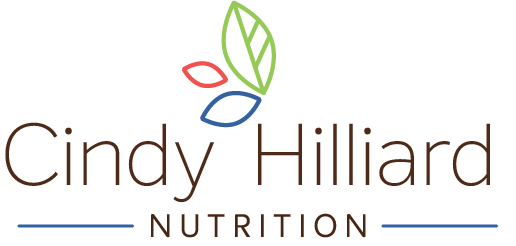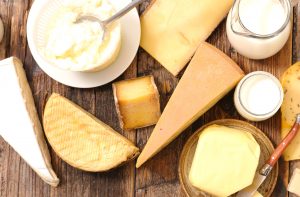Eating healthy doesn’t always have to be about eliminating foods! Sometimes, instead of worrying about what you shouldn’t eat, try to think about adding some new nutrient-dense foods that you should eat. Being healthy is about getting the nutrients you need.
We all know that blueberries, acai and goji berries are good for you and have been called superfoods for their rich vitamin, phytonutrient, and antioxidant content. If you are eating them, keep it up! But there are some other foods that are commonly overlooked that are nutrient powerhouses. The foods on this list were chosen for their diversity or concentration of nutrients. Incorporate as many of them as you can into your diet.
Butter
Have you heard? Butter is back! And for good reason.
Now that we know quality saturated fats are not the enemy, we can focus on all of the amazing benefits of butter! Besides providing both short term and long lasting energy, grass-fed butter contains fat-soluble vitamins D, A, and K-2, and more than 400 fatty acids, including high amounts of CLA (conjugated linoleic acid). CLA has been shown to aid in weight loss, and was shown in a large study1 to reduce heart attack risk by as much as 49%! Another fatty acid found in butter, butyric acid, is a powerful anti-inflammatory agent.
Be sure to choose butter from made from the milk of grass-fed cows—the nutrient profile is quite different than that of grain fed cows—the omega 3 and fat-soluble vitamin content is much higher!
Try these easy-to-find brands for quality and nutrition: Kerrygold (not available in Wisconsin), Organic Valley Pasture Butter, or Vital Farms
Egg yolks
Yes, the yolks! No more plain egg-white omelets—yay! Sure egg whites are a good source of protein, and by all means eat them. But if you’re throwing away your yolks, you’re missing out on most of what makes eggs so great!
Pasture-raised, organic eggs contain Omega 3 fatty acids (much more than their conventionally raised counterparts), B vitamins including choline, B-12, & B-2, vitamin D, vitamin A, and minerals selenium and iodine. That’s a lot of nutrition packed into one perfect little package. Even better—cook ‘em up in some grass-fed butter!
Look for locally raised eggs from a local farmer—direct from the farm or at a farmer’s market. They may not be certified organic, but just ask—many farmers raise their hens on pasture according to organic standards, but are not certified organic because of the high cost of doing so. Pasture-raised or free-range eggs can be found at most supermarkets, but are usually much more expensive. For the best nutrition, look for eggs labeled pastured or pasture-raised, followed by free range. Vital Farms is a reliable brand of eggs available at a supermarket.
Liver
Liver is probably the most nutrient dense food you can eat! A 3.5 oz. serving exceeds the RDA recommendation for vitamin A (actual bioavailable vitamin A that is ready to be utilized by our body, not beta carotene, of which only 10% gets converted by our body into vitamin A), vitamin B-12, B-2 (riboflavin), and copper. It is also a great source of iron, folate, and choline. Primitive cultures coveted organ meats for their rich nutrition and health benefits.
But ewww, liver? The good thing is that a little goes a long way! You really don’t need much. A few ounces each week will get you a huge nutrient boost. I like to hide liver in meatballs. You can also make pate with chicken livers, bacon, butter, garlic, and other delicious ingredients that help mask the strong flavor of liver. Or try desiccated liver capsules (I like this one)—just 4 of these per day each week is the equivalent of eating a 3 oz. serving of liver. Much easier to swallow!
Check out my Superfood Meatball recipe here.
Sardines
Wild caught sardines are another one of the most nutritious foods you can eat. I would probably rank sardines the second most nutritious food right behind liver. Before you dismiss them as gross, try them! They taste like tuna—use them like you would canned tuna!
The nutrient profile of sardines is known for supporting good cardiovascular health. Wild-caught sardines contain Omega-3 fatty acids, vitamins B-12, B-2, & B-3, selenium, and iodine.
Sardines are widely available and come skinless/boneless or with the skin and bones. If you are a more adventurous eater, go for sardines with the skin and bones—they contain more healthy fats and calcium. The bones are soft and relatively unnoticeable. Plus, they come in a can so they’re great to keep on hand or to take along when traveling. Look for sardines in spring water or olive oil, with no other additives other than salt.
Kale
This one is probably no surprise. Kale has been touted as a super food for years now. It’s on this list because calorie for calorie, kale is the most nutritious vegetable you can eat! Kale contains high amounts of vitamins K-2, A and C, and sulfur-containing compounds, which are antioxidant, anti-inflammatory, and anti-cancer nutrients! Kale is especially rich in the carotenoid, lutein, which is known for supporting eye health. Different varieties of kale contain different amounts of these nutrients, so try mixing it up if you can.
All varieties can be eaten raw, sautéed, blended into a smoothie, or roasted and made into kale chips. Kale is also easy to grow, so if you have a garden, consider growing a couple types of kale.
Broccoli Sprouts
What are they? They are the sprouts 3–5 day old broccoli plants! We all know that broccoli itself is chock full of great nutrition, but the nutrient profile of a plant changes as the plant grows from seed to sprout to plant to fruit. Certain phytonutrients and plant compounds are at their peak shortly after sprouting.
Most sprouts are good for you, but broccoli sprouts in particular provide the highest concentration of sulforaphane, which is a sulfur-containing compound found in cruciferous vegetables such as broccoli, cabbage, cauliflower, Brussels sprouts and kale. Broccoli Sprouts contain by far the highest concentration of sulforaphane of any plant. Sulforaphane is a compound that helps fight and prevent cancer, promotes detoxification, boosts the immune system, promotes brain health, reduces asthma symptoms, and behaves as an antiviral, antibacterial, and antifungal agent! There are even more benefits for consuming sulforaphane-containing foods but these are the big ones.
You might get lucky and find broccoli sprouts at the grocery store or farmer’s market. If not, try growing them yourself. Just plant some broccoli seeds and harvest 3 to 5 days after sprouting. Use on salads, sandwiches, or blend them up in a smoothie!
Molasses
Blackstrap molasses is a sweetener derived from sugar cane and is nearly as high in sugar as refined cane sugar, but unlike refined sugar, it contains high amounts of vitamin B-6 as well as chromium, which help our body regulate blood sugar!
Yes, it’s sweet and delicious, but molasses is also a mineral powerhouse. It’s a great source of a wide range of minerals including calcium, magnesium, manganese, iron, copper, potassium, and selenium. Word of caution: even though molasses is a natural, healthier sweetener, it is still a sweetener, so use it when you want a sweet treat or a boost of mineral, but don’t make it a part of every meal.
Molasses is often used in cookies and cakes. Also try drizzling it on sweet potatoes, pumpkin pancakes, or on ice cream. Organic molasses is widely available at most grocery stores or online.
Kimchi and other Fermented Vegetables
Fermented foods are one of the best probiotic, gut-healing, digestion-helping, immune-supporting foods out there! Try using kimchi or sauerkraut as a condiment with a meal, or even a tablespoon or so on their own. The varied probiotic and enzyme content is beneficial for digestive health. Fermented foods also tend to be rich in many B vitamins.
Fermented foods are very easy to make. You basically put veggies and water or brine into a jar and let set on the counter for a few days. We use the Perfect Pickler to make it a little easier to control—works great! You can buy them too, but make sure they are not pasteurized. Pasteurization kills all of the good bacteria and enzymes. Authentic fermented foods will always be in the refrigerated section of the store. Look for:
Kimchi: a Korean staple of napa cabbage, daikon radish, and hot peppers
Sauerkraut: shredded cabbage with a bit of seasoning.
Pickles: cucumbers or any other pickled veggies (not the typical ones you buy in jars—look for fermented pickles).
There are obviously plenty more super foods out there, and it’s great to diversify your diet! Next time you’re at the farmer’s market or grocery store, try a new vegetable, cut of meat, or seafood! Not only do you get to experience new potential favorites, but also the unique nutrition in each food helps your body get nutrients it may not have otherwise.
For more information check out Worlds Healthiest Foods http://whfoods.org
1 American Journal of Clinical Nutrition, 2010: https://www.ncbi.nlm.nih.gov/pubmed/20463040
__________________________
All content on CindyHilliard.com is for information purposes only and is not to be used in place of medical advice or treatment. Always seek the care of a medical professional if you have health concerns.
__________________________
Links on CindyHilliard.com may be affiliate links, which means that I may receive a small commission if a purchase is made by clicking a link, with no additional cost to you. I only share links to products that I truly use and recommend!
Cindy Hilliard Nutrition is a participant in the Amazon Services LLC Associates Program, an affiliate advertising program designed to provide a means for sites to earn advertising fees by advertising and linking to amazon.com




